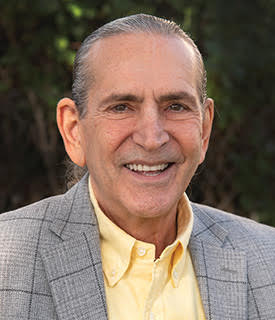It’s crazy to think that it’s been around a hundred years since the country decided to ban drugs. Since then we’ve been incarcerating addicts, punishing them with criminal records (making it difficult for them to get jobs), and being judging them as a nuisance in society. This approach is meant to make addicts suffer as an incentive to stop or avoid using. However, has this been working? Do we even know what causes addiction to begin with? Is there a better approach we could be trying?
With new research on addiction emerging, we’re learning that everything we thought we knew about addiction is wrong. If we were to absorb this new research, we would realize our current drug policies need to change. Based on the common understanding of addiction, if people were to go on a 20 day heroin binge, what would we expect to happen? Most people would say, they’d expect these people to turn into heroin addicts. This is because science has taught us about chemical hooks, making our bodies dependent on a substance. However, what happens when someone gets in an accident and winds up on diamorphine at the hospital? Diamorphine is actually heroin; in fact it’s medical grade heroin, better than anything found on the streets. With the idea of chemical hooks in mind, wouldn’t all these people be addicted to diamorphine? Interestingly, we don’t see this happen the same way as a heroin addicts.
Our beliefs about addiction stem from experiments performed in the early 20th century. They were very simple experiments. Basically, a rat was put into a cage with 2 bottles of water: one filled with regular water and the other with heroin water. Majority of the time. the rat preferred the heroin water again and again until it killed itself. It wasn’t until the 70’s when professor Bruce Alexander from Vancouver noticed we were putting a rat in an empty cage alone with nothing to do but use these drugs. So he decided to build the “rat park.” This was rat cage heaven! It had lots of cheese, toys, and friends for socializing and sex, along with both water bottles. Interestingly enough, the rats in rat park did not like the heroin water. They rarely drank it, there was no compulsive drinking, and zero overdoses. We went from a 100% overdose rate in the initial study to a 0% overdose rate in the rat park study.
Around the same time, we saw a human experiment at the same time called the Vietnam war. 20% of American troops were using heroin. The country was worried a ton of junkies would be returning home. Those who used heroin were followed home and the archives of general psychiatry did a detailed general study on them. It turned out that none of them went to rehab or went into withdrawals; in fact, 95% of them just stopped using. This brings up the question, is it less about the chemical hooks and more about their cage that makes them addicted? Is it the connection they have to their environment and how they adapt?
Another professor from the Netherlands, Peter Cowen, said we shouldn’t call it addict, but instead we should call it bonding. Humans have an innate need to bond. So if people are happy and connected, we’re bonding with each other. But if someone can’t do that because they are isolated, struggling, and beat down by life, they will bond with anything that will give the a sense of relief. This could be anything from gambling, to drugs, to alcohol.
We all have the capability to be drug or high everyday, but why don’t we? No one is holding us back? It’s because we have connections we want to be present for. We have people we love, work, things we love doing. Addiction happens when we just can’t deal to be present in life.
Instead of punishing and shaming addicts, we should follow Portugal’s steps. In 2000, Portugal had one of the worst drug problems with a large chunk of their population being addicted to heroin. Because they’re current system (like the US) wasn’t working, the prime minister decided to get a group of medical experts to figure something out. They dove into research and decided to completely decriminalize drugs and instead spend all their money they would spend on disconnecting them, to reconnect them into society. Not only were they rehabilitating them and providing therapy, but they had a program that placed them in jobs and provided micro loans for them to start businesses. The program would ask employers to hire addicts provided they would cover half their wages. Since initiating this change 15 years ago, Portugal has seen a 50% decrease in injecting drug use, according to the British Journal of Criminology. That meant overdoses, HIV, and addiction in all studies were decreased.
We shouldn’t be disconnecting addicts from society, instead we should be reaching out to connect with them. Some people say we’re living in a more connected world, but friends on social media won’t be there for you immediately like a present friend can. While we focus on individual recovery, we should be focusing on social recovery as well.
Addictions come in many forms, like our phones, the internet, social media, food, and exercise. People don’t only reach out to drugs and alcohol for those connections in life. If you or a loved one struggles with addiction, please contact Crownview Medical Group to get in touch with a medical professional who specializes in individual treatments – both in and out patient.
Source: https://www.ted.com/talks/johann_hari_everything_you_think_you_know_about_addiction_is_wrong
























